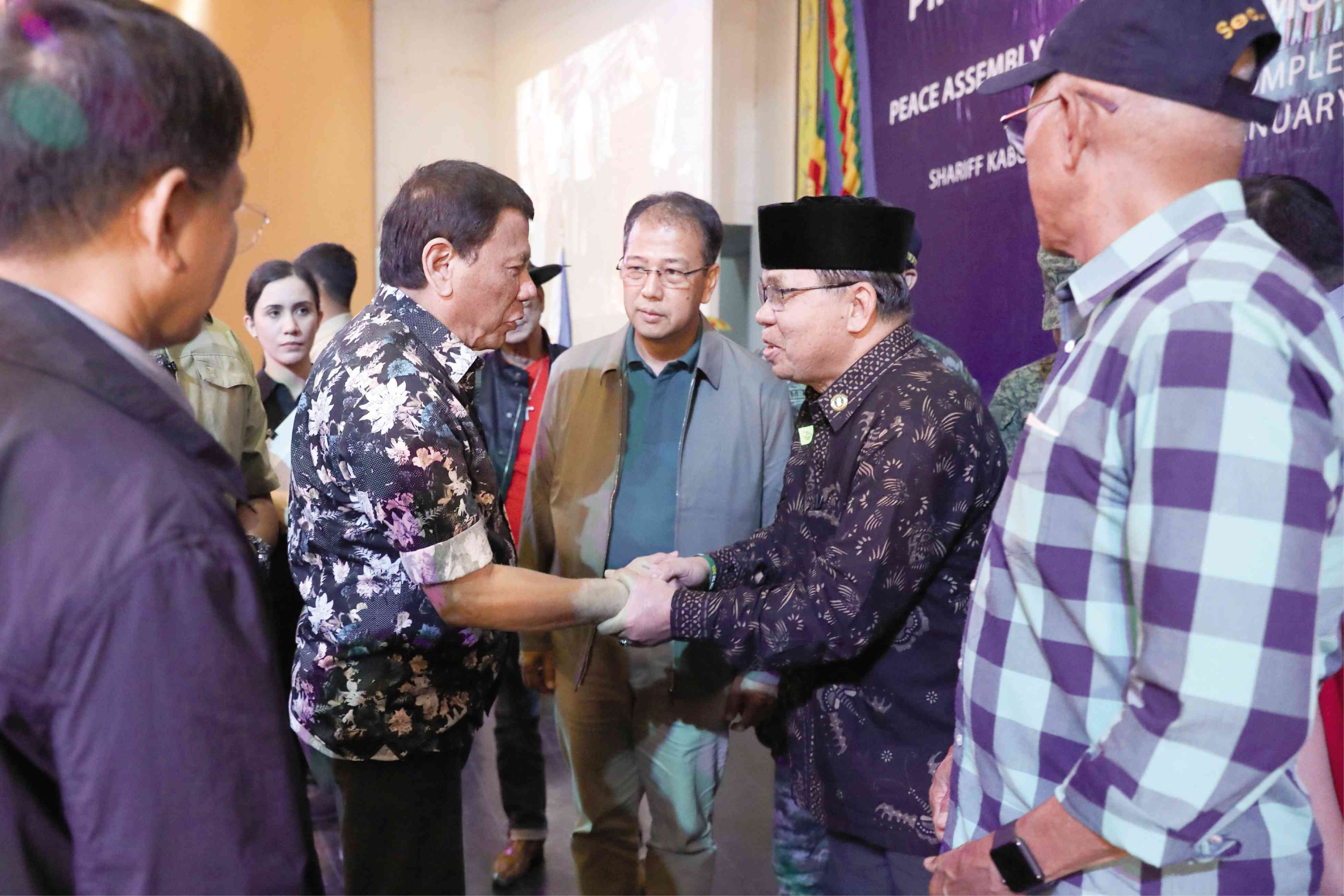Challenge after BOL ratification: MILF to decommission arms

Credit to Author: clopez| Date: Sat, 19 Jan 2019 21:48:24 +0000
SULTAN KUDARAT, Maguindanao — The Moro islamic Liberation Front (MILF) will begin to decommission thousands of weapons after the ratification of the law that will establish broader autonomy for Muslims in Mindanao, the rebels’ chief said on Saturday.
MILF chair Murad Ebrahim said once the Bangsamoro Organic Law (BOL) was ratified in a plebiscite on Jan. 21 and Feb. 6, at least 12,000 firearms would be “immediately decommissioned.”
Murad said the MILF forces had between 30,000 and 40,000 firearms.
“We are still accounting the firearms because there are three categories in the weapons that we have: weapons owned by the organization, weapons owned by the combatants and weapons owned by sympathetic civilians,” he said.
Murad said the MILF was talking with other armed groups in Mindanao, including the breakaway Bangsamoro Islamic Freedom Fighters and private armies, to try to persuade them to also give up their weapons.
Part of 2014 agreement
He said the government had offered to integrate MILF members into the police and military service but they declined, saying they did not struggle for an independent homeland just to become soldiers or policemen.
“That’s not what we want,” Murad said.
The decommissioning is part of the 2014 Comprehensive Agreement on the Bangsamoro, which among other things, called for the drafting of a law to establish the Bangsamoro Autonomous Region in Muslim Mindanao (BARMM) to replace the Autonomous Region in Muslim Mindanao (ARMM). That law, the BOL, was passed in July last year.
Under the decommissioning process, the MILF will turn over its weapons to an independent decommissioning body, which will put the firearms “beyond use.” The body is composed of representatives of countries that support the peace process with the Moro rebels.
In June 2015, then President Benigno Aquino III and Murad witnessed the symbolic decommissioning of 55 high-powered rifles and 20 crew-served weapons, such as mortars by MILF fighters at a rebel camp.
Potential problem
Aside from weapons, Moro combatants also will be decommissioned and provided medium- to long-term socioeconomic support by a task force on former combatants and communities.
The decommissioning of MILF weapons, however, could be a potential problem, especially in Mindanao where guns proliferate and armed groups operate.
But Murad said his followers would not hold on to their firearms forever.
“We are willing to give up our weapons because we know if you look in progressive countries worldwide, they have no guns,” he said. “We will … decommission all our guns. We can live without it.”
If the international community sees Moro rebels laying down their arms, development would come in in the troubled region, according to Maguindanao Gov. Ismael Mangudadatu.
“It might also force other groups [to follow] once they see the outcome of the decommissioning. The problems in Mindanao will vanish,” he said.
Control over taxation
Under the BOL, Muslim Filipinos will be allowed to elect members of their own parliament that will administer Islamic-majority areas in Mindanao and nearby islands, where five decades of Moro insurgency have killed more than 100,000 people.
The law will give them control over many local government functions, including taxation and education, and allow Muslim Filipinos to incorporate Islamic law into their justice system.
Once the BOL is ratified, an 80-member Bangsamoro Transition Authority, whose members will be appointed by the President, will run the BARMM’s parliamentary government until the election of its first set of officials in 2022.
The MILF central committee has endorsed Murad to lead the transition government and in preparation for the first regular elections, the group has formed a political party called the United Bangsamoro Justice Party.
Wider powers
The BARMM will have wider political and economic powers than the present ARMM.
The new region will receive an annual block grant equivalent to 5 percent of the net national tax collection of the Bureau of Internal Revenue and the net collection of the Bureau of Customs from the third fiscal year following the current fiscal year.
The annual block grant, which was earlier estimated to be about P60 billion, shall be automatically appropriated in the national budget.
At least P5 billion per year for 10 years, or P50 billion in total, will also be provided by the national government to the BARMM as special fund for rehabilitation and development, in line with the “normalization” aspect of the 2014 peace accord.
The Bangsamoro government will also get 75 percent of the total national taxes and fees collected in the region.